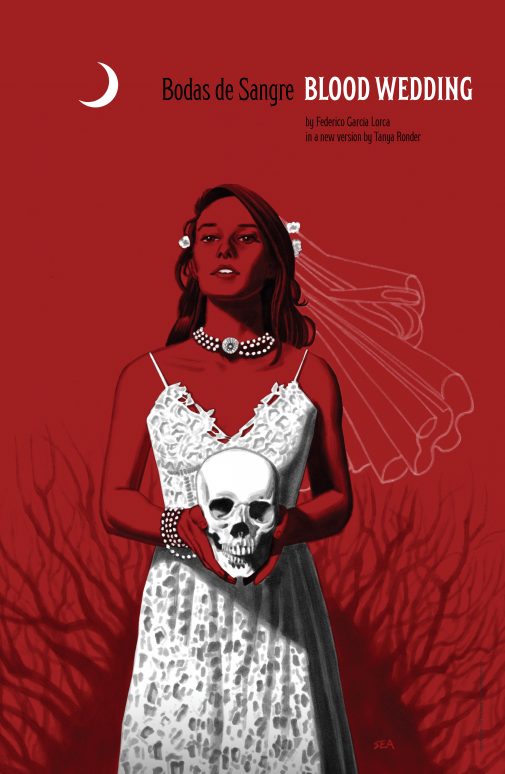Theater Offers Passionate ‘Blood Wedding’
By
Westmont
 The Westmont College Festival Theatre offers “Blood Wedding,” a tragedy written by Federico García Lorca, one of Spain’s most revered and controversial dramatists, Feb. 24-25 and March 2-4, at 7:30 p.m. in Westmont’s Porter Theatre. General admission is $12; $7 for students, children and seniors. Tickets may be purchased online at westmont.edu/boxoffice.
The Westmont College Festival Theatre offers “Blood Wedding,” a tragedy written by Federico García Lorca, one of Spain’s most revered and controversial dramatists, Feb. 24-25 and March 2-4, at 7:30 p.m. in Westmont’s Porter Theatre. General admission is $12; $7 for students, children and seniors. Tickets may be purchased online at westmont.edu/boxoffice.
“The bride has chosen well; the man of her future is a glass of clear water,” says Mitchell Thomas, professor of theater arts who directs the play. “But the muddy river of her past won’t stop flowing. Written in 1932, ‘Blood Wedding’ dares to explore a seductive tale of passion and doomed love that speaks to any heart longing for true connection.”
Lorca was executed at 38 at the beginning of the Spanish civil war. “His murder by militant and nationalist forces for his socialist leanings and suspected homosexuality was a tragedy, robbing world literature of a remarkable poet and playwright, and should serve as a deep warning and urgent reminder of what human societies and governments are capable of,” Thomas says.
Thomas’ production includes a subconscious or shadow universe that expresses the undercurrents of longing, danger, love and passion. This creative storytelling device is set against the primary action of the play in its structured and enclosed world. The ensemble features 15 student actors, including junior Anna Telfer (Bride), who was featured as Rosalind in Westmont’s production of “As You Like It” in the fall, sophomore Karly Kuntz (Mother) and transfer student Troy Chimuma (Leonardo).
“‘Blood Wedding’ is Lorca’s surrealist exploration into forbidden passion, identity, and societal structures that both support and cage its people — themes that Lorca knew very well,” Thomas says. “I hope that audiences make connections to their individual and communal lives with these universal themes, and that audiences resonate with the dark creative currents that flow in his play — what Lorca describes as ‘poetry that rises from the page … and becomes human.”
Filed under
Academics, Arts at Westmont, Campus Events, Faculty and Staff, Featured, Press Releases, Student Stars